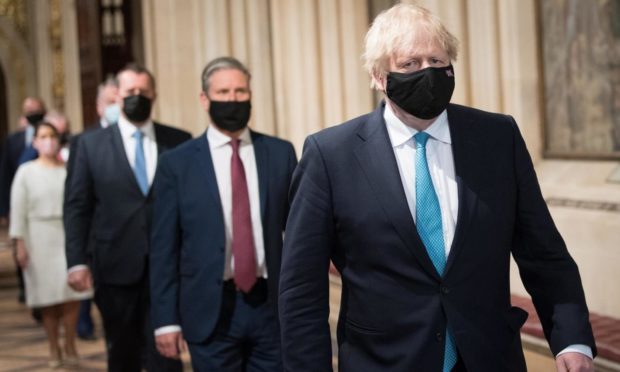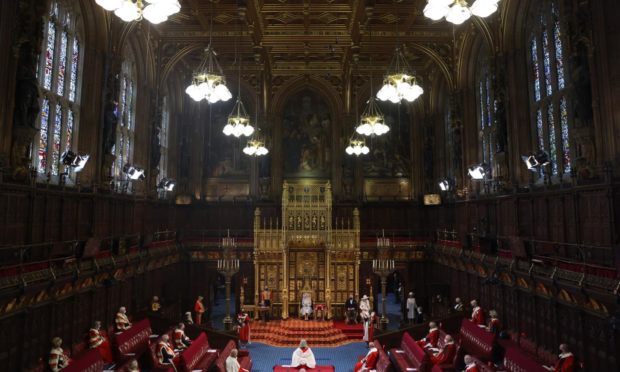The usual pomp and ceremony of the Queen’s Speech was scaled back drastically this year, with 100 – not the usual 600-plus Lords, Ladies and Commoners – invited to the Palace of Westminster for Her Majesty’s legislative address.
Covid-19’s presence was felt equally inside the Chamber, with all required to wear a mask and present a negative test to gain entry, and on the pages of the Queen’s address.
Pandemic and recovery were the buzzwords at this State Opening of Parliament, with every announcement couched in the language of the last year.
This was Boris Johnson’s programme for “national recovery”, a plan to “make the United Kingdom stronger, healthier and more prosperous than before” – or so we were told.
Front and centre of the plan was the Union, the speech made clear it was Number 10’s aim to strengthen the ties between the four nations of the UK and, in what could be construed as a rebuttal of the SNP’s electoral success last week, that indyref2 should not be a priority of this Parliament.
A briefing document, issued to journalists ahead of the speech, stated under a section on the Union that the Covid-19 recovery would not be “quick” and that “our collective priority right now” should be tackling challenges associated with the pandemic.
Nicola Sturgeon has said as much herself, but the SNP were quick to issue a warning shot to Mr Johnson and Co that once the crisis had passed, the UK Government must “respect the will of the Scottish people to determine our own future”.
Beyond Boris’s “build back better” rhetoric lay plans for 30 Bills, covering everything from post-Brexit border arrangements to the rules that govern how we vote. But, much of the programme had already been touted in Tory manifestos and on the campaign trail ad nauseam. The question for this next Parliament will be: can Johnson deliver?

